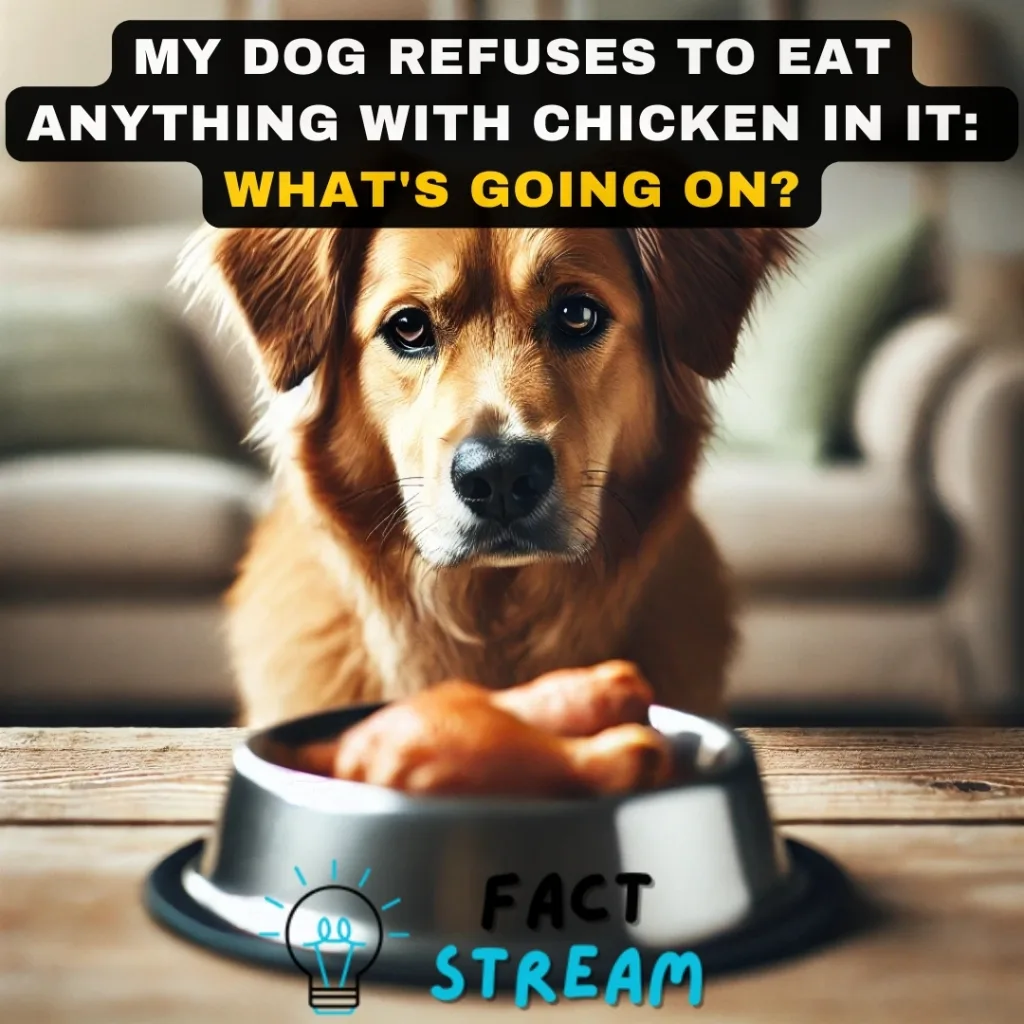My Dog Refuses to Eat Anything with Chicken in It: What’s Going On?
It’s a common scenario: you’re a loving dog parent, excited to give your furry friend some delicious chicken, only to find they turn their nose up at it. While chicken is a staple in many dog foods, some dogs develop an aversion to it. This can be frustrating and concerning, especially when your dog seems healthy otherwise. So, why does your dog refuse to eat anything with chicken in it, and what can you do about it?
Potential Reasons Your Dog Won’t Eat Chicken
1. Chicken Allergy: One of the most common reasons dogs refuse chicken is an allergy. Poultry allergies in dogs are surprisingly prevalent, and they can manifest in various ways, including:
- Diarrhea
- Ear Infections
- Chronic Gas
- Skin Rashes
- Itchiness
- Vomiting
If your dog exhibits any of these symptoms after consuming chicken, it’s crucial to consult your veterinarian. They can conduct tests to confirm the allergy and guide you on managing it.
2. Picky Eating: Some dogs are simply picky eaters. They might have developed a preference for other protein sources or become bored with their regular food. This is especially common if you’ve given in to their demands for treats or table scraps in the past.
3. Underlying Medical Conditions: Sometimes, a dog’s refusal to eat, including chicken, can signal an underlying medical issue. Here are a few possibilities:
- Dental Problems: A toothache or gum disease can make eating painful, leading to a decreased appetite.
- Gastrointestinal Issues: Problems like pancreatitis, inflammatory bowel disease (IBD), or even a simple upset stomach can make dogs lose their appetite.
- Other Illnesses: Various other illnesses, from infections to metabolic disorders, can affect a dog’s appetite.
4. Psychological Factors: Stress, anxiety, or even changes in their routine can impact a dog’s eating habits.
- Separation Anxiety: Being left alone for extended periods can cause anxiety, leading to a loss of appetite.
- Environmental Changes: Moving to a new home, the arrival of a new pet or family member, or even changes in their feeding schedule can stress a dog and affect their eating.
What to Do if Your Dog Refuses Chicken
If your dog suddenly stops eating chicken, or their appetite changes significantly, the first step is to consult your veterinarian. They can rule out any underlying medical conditions and provide tailored advice.
Here are some additional steps you can take:
1. Rule Out Spoiled Food: Make sure the chicken you’re offering is fresh and properly cooked.
2. Gradual Introduction: If you’re introducing chicken to your dog’s diet for the first time, do it gradually. Start with a small amount mixed with their regular food and slowly increase the proportion.
3. Entice Them: Try making the chicken more appealing by:
- Warming it slightly in the microwave
- Adding a splash of low-sodium chicken broth
- Mixing it with a small amount of cooked white rice
4. Eliminate Treats and Table Scraps: Reduce or eliminate treats and table scraps to encourage your dog to eat their regular food.
5. Try Different Foods: Experiment with different types of dog food, including those with novel protein sources like fish or lamb, to see if your dog has developed a preference.
6. Create a Calm Environment: Ensure your dog’s feeding area is quiet and free from distractions to minimize stress during mealtime.
7. Be Patient and Consistent: It might take time and patience to get your dog back on track with their eating habits. Stick to a regular feeding schedule and avoid giving in to their picky demands.
A Word of Caution: Boiled Chicken Every Day?
While plain, cooked chicken can be a healthy treat or a temporary solution for an upset stomach, it shouldn’t be the sole component of your dog’s diet long-term.
Dogs require a balanced diet with a variety of nutrients, and feeding them only chicken could lead to deficiencies.
Key Takeaways
- A sudden refusal to eat chicken could indicate an allergy, pickiness, or an underlying medical condition.
- Consult your vet to rule out any health concerns and receive personalized advice.
- Try making the chicken more appealing, eliminate treats, and create a calm feeding environment.
- Be patient and consistent with your efforts.
By understanding the potential causes and taking appropriate steps, you can address your dog’s reluctance to eat chicken and ensure they receive the nutrition they need to thrive.


